I'm a digital nomad who was traveling the world when the coronavirus pandemic began. Here's why I chose to quarantine in Vietnam instead of the US — and why I'm glad I did.
Tasha Prados

- Tasha Prados is an entrepreneur, digital nomad, and founder of a marketing consulting practice.
- In February 2020, Prados traveled to Vietnam with plans to stay in the city of Hội An for one month — but as the COVID-19 pandemic spread, she quickly made the decision to quarantine in place.
- She found a house to rent and isolate in with five fellow travelers, just before Vietnam closed its borders and issued stay-at-home orders.
- The lockdown lifted after 24 days, and Prados says she's glad she chose to stay in Vietnam, and especially thankful for country's contact-tracing efforts and safety restrictions that helped curb the spread of the virus.
In September 2019, I quit my job to start my own business and marketing strategy consulting practice and travel the world as a digital nomad. I came to Hội An, Vietnam in February, intending to stay for one month — and then, the coronavirus happened. I'm still here, and don't currently have a plan to leave.
Pre-COVID-19, I was a digital nomad traveling around Asia
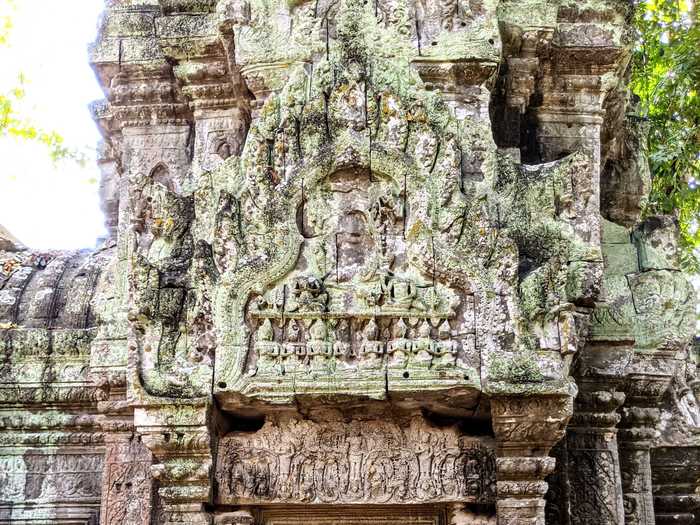
I'd been staying in places like Bali in Indonesia and Koh Lanta in Thailand, and visiting cities like Penang and Kuala Lumpur in Malaysia, East Java in Indonesia, Siem Reap in Cambodia, and Singapore.
Being not far from China, I was monitoring the spread of COVID-19 from its early days, and thinking about how it might affect my plans. In early February, I was on the small island of Koh Lanta in Thailand, spending most of my time at a tropical coworking space, Kohub.
But as things began to look more serious, I wanted to get off the island and go somewhere that was handling COVID-19 well. I'd heard great things about another coworking space in Hội An, Vietnam, Hub Hội An, which was just one short flight away.
I flew into Vietnam just a few weeks before the country closed its borders
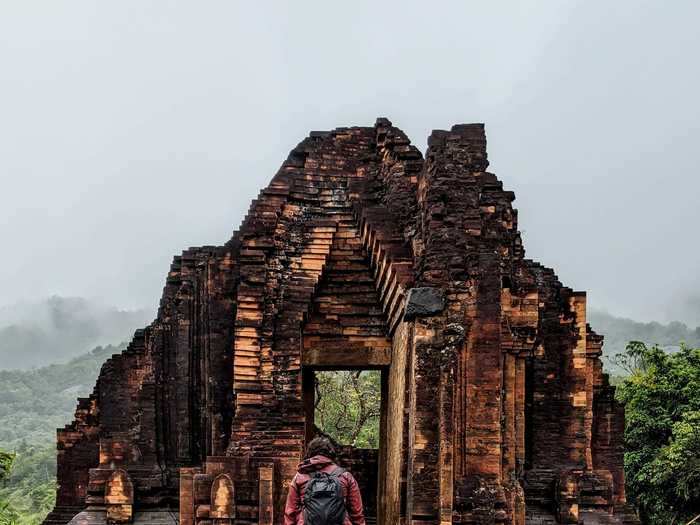
In mid-February, Vietnam had only had 16 cases of COVID-19 — and all of the patients had successfully recovered, despite Vietnam sharing a border with China.
I got to Vietnam on February 24. It turned out to be a great choice: Vietnam has had one of the most effective responses to the coronavirus so far thanks to early action, preventative measures, contact-tracing, quarantines, and public education efforts.
When I arrived, the Vietnamese government had already released a now-viral handwashing song which has over 45 million views and has spawned some pretty cool dances on Tik Tok.
I arrived just a few weeks before Vietnam closed its borders and stopped issuing visas on March 17, and began to send all arrivals from repatriation flights into mandatory 14-day quarantines.
When I first arrived, life felt relatively normal
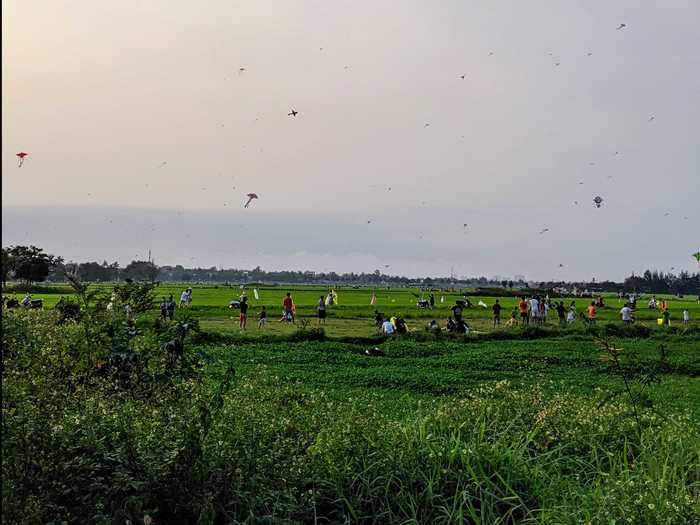
After arriving in Hội An, at first things seemed pretty normal. Vietnam made face masks mandatory early on, but I could still go to the coworking space and eat at restaurants if we maintained proper social distance and didn't gather in large groups.
But quickly, things started to get real. All I was thinking about was the pandemic. Every conversation was about COVID-19, and I checked the news multiple times a day. The WHO declared COVID-19 a global pandemic. On March 12, the US State Department issued a global level 3 travel advisory. This meant I had 10 days to request an all-expenses-paid evacuation through my travel insurance to the US. It was decision time.
I decided to stay abroad 'indefinitely'
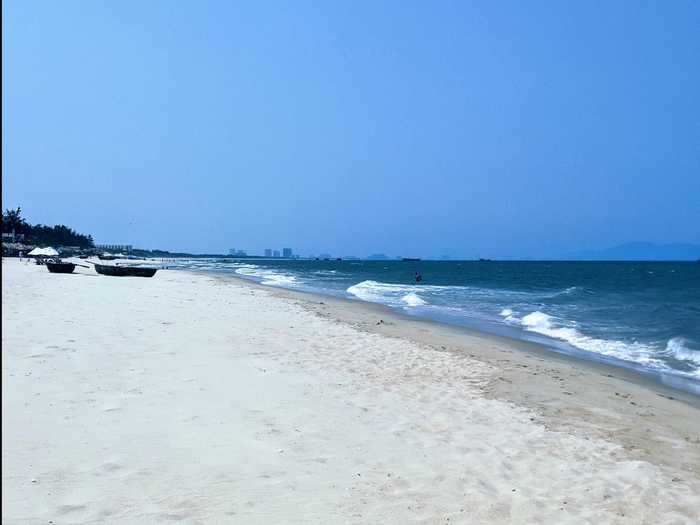
I made a pros and cons list — should I stay or should I go back to the US? I agonized over the decision. I talked to my family, and together, we decided I should stay in Vietnam. My top concern was what would happen if someone in my family got sick and I wasn't there — but my mom argued that if she got sick, I couldn't help anyway, because she would need to be isolated. I didn't want to risk being a vector for the virus and getting anyone sick by traveling. I had been prepared to be abroad "indefinitely" anyway, and, like many digital nomads, I didn't have a "home" to go back to in the US, per se.
It was a complicated decision that I questioned a lot over the next few weeks — but, as of now, I think it was the right one.
So there it was, a stop to my 'nomading.' Time to stay put in one place — and prepare for possible quarantine. First, I needed to find a place with a kitchen. Luckily, a few nomad friends I met through Hub Hội An invited me to stay with them. We found a villa where we could wait it out, which we fondly nicknamed Casa de Quarantine. There were six of us: another American, a Spanish woman, a Polish woman, and a Dutch couple. We figured isolation was coming, so on March 27, we went for a supply run in DaNang, the nearest big city, about an hour away.
During our supply run, we were stopped at a health checkpoint
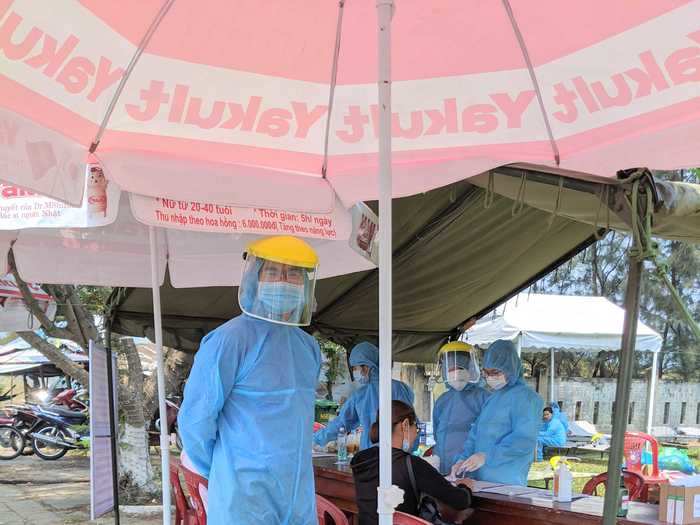
Vietnamese health care workers, wearing full personal protective equipment, took our temperatures and had us fill out forms stating how long we'd been in the country, the flights we came in on, where we were staying, etc. Vietnam has an excellent contact-tracing effort, which we saw firsthand — we knew people who'd been asked to self-isolate for two weeks because they'd been on a flight with someone who turned out to be infected. I had to self-report my health status when renewing my visa on an app the government released.
On March 31, everyone was ordered to stay at home except for essential shopping
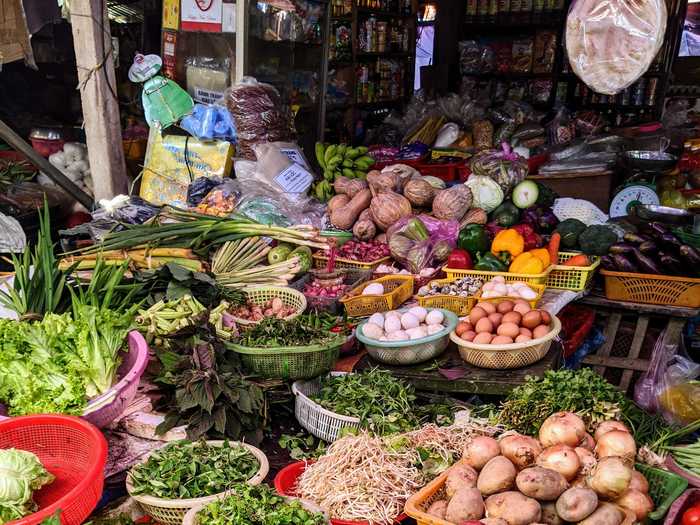
On March 31, the Vietnamese government ordered nationwide social-distancing restrictions — we were only supposed to go out for essentials. It felt like we'd moved in the nick of time.
We could still get everything we needed during the isolation, including ordering take out food to be delivered.
In our group home, we're worked together to stay busy
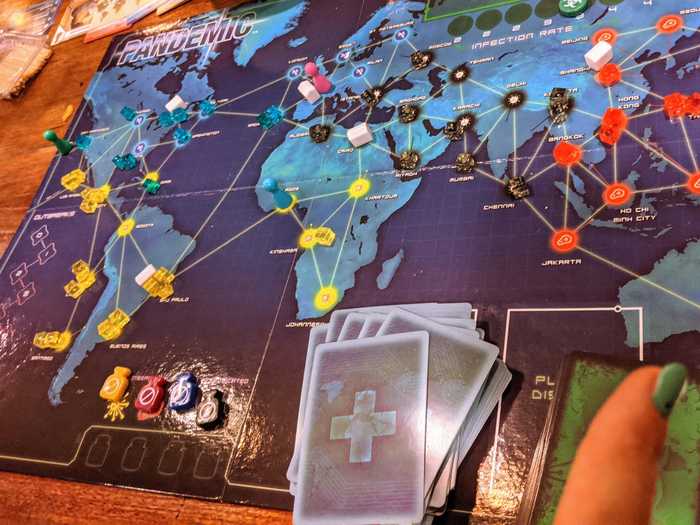
We started a tradition of "family dinner" every Saturday, where we took turns making a nice dinner and drinks for the whole house, and got dressed up before sharing the meal.
We also stayed busy with board games, including one called Pandemic from the company Lazada. It was great having five other people in the house to play era-appropriate games with. I felt lucky to have my own private space in the house, as well as be among friends to talk to and hug when I needed to.
Our other primary source of entertainment was our foster kitty, Rubio
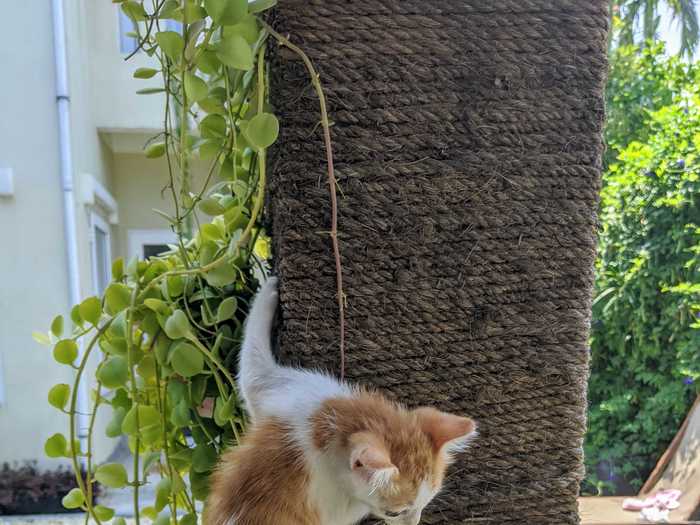
Watching Rubio's kitty antics was endlessly enjoyable. We even made him an Instagram account.
Besides getting groceries, I only went out to run in the rice fields
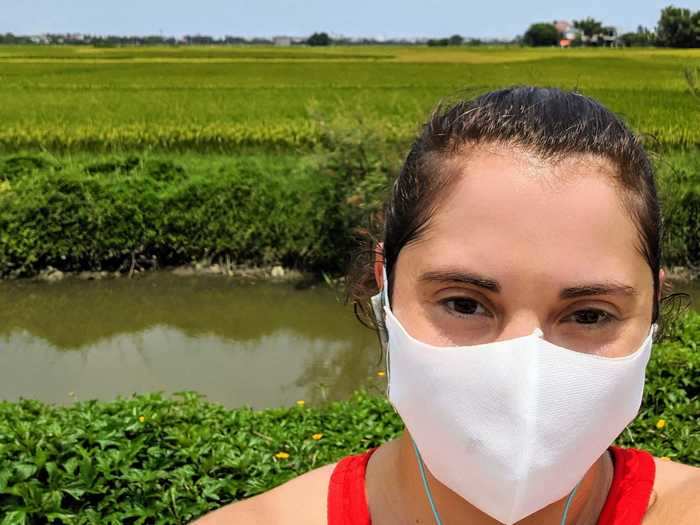
Vietnam made masks mandatory early on, and I always wore one whenever I left the house. I tried to work out every day during self-isolation and take advantage of our swimming pool.
Normally bustling areas of the city were eerily empty
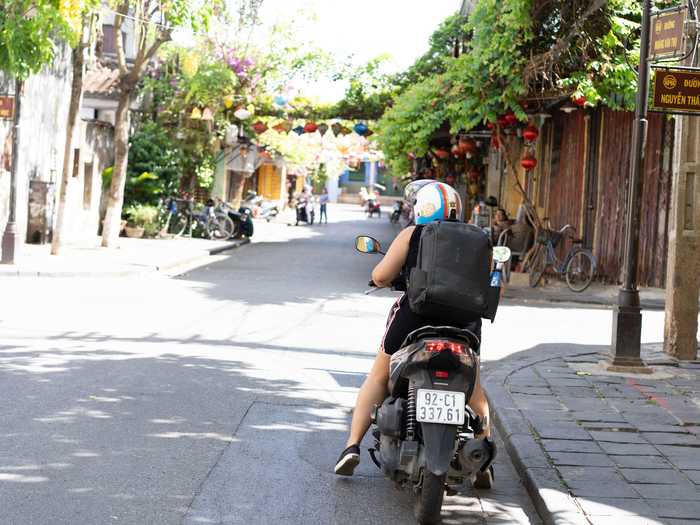
Hội An Old Town is a UNESCO World Heritage Site normally packed with tourists and pedestrian-only zones. During isolation, it was eerily empty, with only the occasional motorbike passing through. Small shops in Old Town also had to close, as there were no tourists to do shopping.
Before long, we were able to slowly come out of isolation
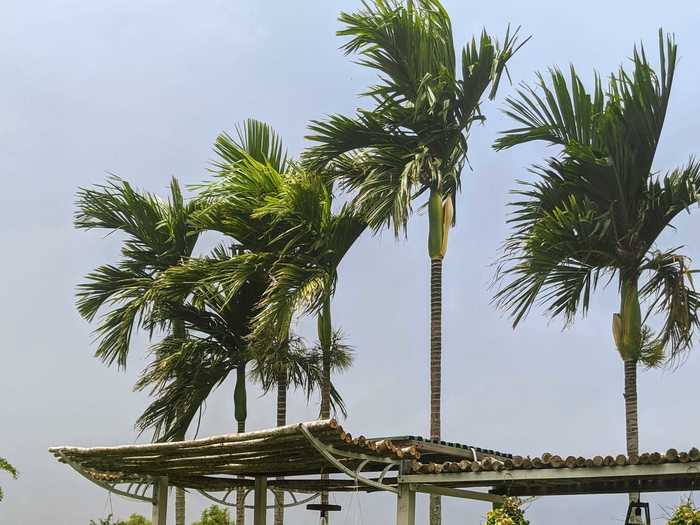
We only had 24 days of socially-distanced isolation. It was such a juxtaposition with friends and family in the states — many of whom were still in strict lockdown, desperately trying to file for unemployment or take care of and teach their kids while doing their jobs. I've honestly felt a lot of guilt about how easy my experience has been compared to folks back home; which I've tried to assuage by donating to local organizations where I'm from and being there for folks who are struggling.
After five days of no new cases of COVID-19, on April 23, strict isolation measures were lifted in my province.
When I heard the news, I didn't feel quite mentally prepared to leave my safe cocoon. I'm sure I would have felt differently if I had been alone and lonely, but I felt safe and like I had everything I needed.
Even though by all accounts the virus was completely contained, I still found myself questioning if it was safe and responsible to go out. In those early days, we went out to restaurants and coffee shops a lot, but I still spent most of my time at home.
As things went back to normal, we were able to venture away from the villa
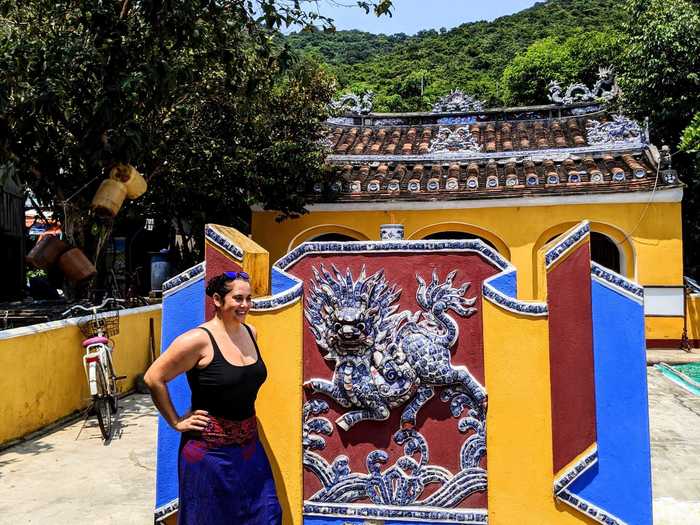
Once the situation felt safe again, we decided to go for an overnight trip on a nearby island. I was able to celebrate my birthday with a night away, beach camping with friends on the nearby Cham Islands, which were recently reopened to tourists.
I don't have any regrets deciding to stay
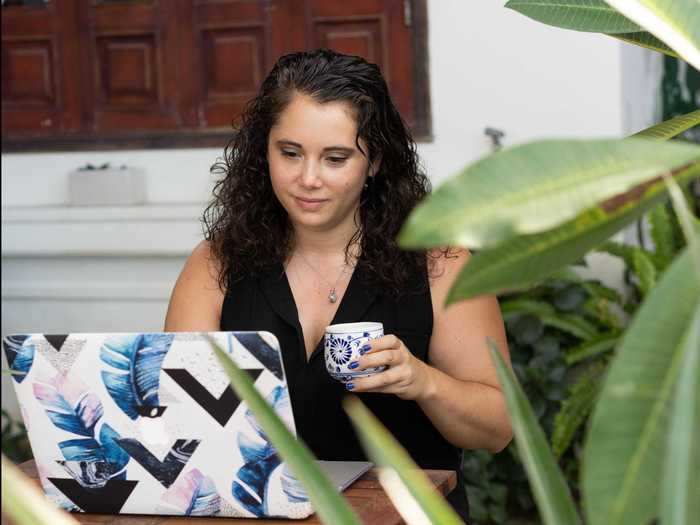
I'm immensely grateful to the government of Vietnam for the privilege of being here, and for their smart and fast action — in such contrast to my own government. People here say to me, "Oh you're American? I'm so sorry."
I have no idea what the future holds — and if or when it will be responsible to travel again. What I do know is that this is an opportunity to reflect on our individual and collective lives: how we go about them, and what we prioritize. I've completely transformed my life over the last year — selling or donating most of my things, giving up having a place to call home, and quitting a stable job — all to start my own business and embrace traveling full-time, and I don't regret a minute of it.
Tasha Prados is a freelance writer, digital nomad, former Peace Corps volunteer, and the founder of Duraca Strategic, a consultancy which helps purpose-driven organizations maximize their impact through branding, business, and marketing strategy. She has 10 years of project management and communications experience with the world's leading brands, agencies, and organizations. Follow her on Instagram and Twitter.
READ MORE ARTICLES ON
Popular Right Now
Popular Keywords
Advertisement